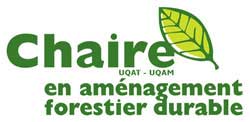ALTERNATIVE LIFE HISTORY AND THERMOREGULATION STRATEGIES IN THE SVALBARD REINDEER
- Direction : The project will be conducted under the direction of Gabriel Pigeon, Professor of Animal Ecology at the Université du Québec en Abitibi-Témiscamingue (UQAT). Pr Pigeon's research interests include demography, evolution and conservation. The project will be co-directed by Pr Sandra Hamel, who holds the Leadership Chair in Biostatistics and Analytical Development at Laval University. The project is in close collaboration with Pr Leif Egil Loe and his team at the Norwegian University of Life Sciences, in Norway.
- Institution : IRF-UQAT
- programme : Doctorat sur mesure en écologie forestière
- Support financier : 21,000 CAD per year
- Date d'inscription : between March and September 2023
- Offre en format pdf: Télécharger
The Arctic is warming at an extreme rate, and some of the largest temperature increases are occurring in the Norwegian archipelago of Svalbard (+ 1.7⁰C per 10 years). This makes Svalbard an excellent system for quantifying the effects of climate change on species, trophic interactions, and fragile ecosystems. Recently, we made the novel discovery of two phenotypes of reindeer (Rangifer platyrhynchus) with contrasting thermoregulatory physiology: one frequently lowers its subcutaneous body temperature, thus saving energy, while the other maintains a stable, high temperature throughout the winter. According to life-history theory (POLS), physiological (such as metabolism), behavioral, and life-history traits co-evolve to form different life-history strategies along a fast to slow continuum. Each of the two reindeer phenotypes has a distinct behavior, diet, and gut microbiome. It is therefore possible that one of the two phenotypes is better adapted to climate change than the other.
The objectives of this project are to: 1) determine how reindeer life history strategies cluster individuals across a range of phenotypic traits, 2) document how phenotypes respond with environmental variations, and 3) model the consequences of a warming climate on reindeer population dynamics. This project will help predict the response of reindeer populations to rapid climate warming.
This 3 years project is fully funded at 21,000 CAD per year. There will be an opportunity to spend a field season in Svalbard to capture and tag reindeer as part of the Svalbard Reindeer Project, a longitudinal study initiated in 1995 by Steve Albon that has tracked more than 1000 individuals from birth to death. The Svalbard Reindeer Project now includes an international team of researchers in Scotland, Norway, Austria and Canada. An internship in Norway, in the laboratory of Leif Egil Loe, will also be possible. The student will also be able to present his research at national and international conferences.
Profil recherché
Essential skills and qualifications
- A master's degree in biology, ecology, environmental science, statistics, or a related eld. Anyrelevant work experience will also be considered.
- Numerical expertise, particularly in R, or other modelling languages
- Experience in animal ecology, demography, life-history theory or other relevant subject
- Research, leadership and communication skills
- Interpersonal skills, and proactive and collaborative approach to research
- Enthusiasm and kindness
Desirable skills and qualifications
- Experience in capture-mark-recapture (CMR) models
- Experience in Bayesian statistics
- Knowledge of demography
- Grade A (3.8/4.3) or higher
- Fluency in French
- Be somewhat of a geek
Lieu
The selected candidate will be enrolled at UQAT. Located in the heart of a territory where wide open spaces, lakes and forests stimulate creativity and the emergence of talent, UQAT is naturally different ! UQAT ranks among the top three Canadian universities in terms of research funding per professor. With a research volume of $16.2M per year and state-of-the-art laboratories, UQAT represents an exceptional environment for graduate studies
Direction
The project will be conducted under the direction of Gabriel Pigeon, Professor of Animal Ecology at the Université du Québec en Abitibi-Témiscamingue (UQAT). Pr Pigeon's research interests include demography, evolution and conservation. The project will be co-directed by Pr Sandra Hamel, who holds the Leadership Chair in Biostatistics and Analytical Development at Laval University. The project is in close collaboration with Pr Leif Egil Loe and his team at the Norwegian University of Life Sciences, in Norway.
Renseignements
To apply, send a letter of intent, a CV, a copy (unofficial) of your transcripts in pdf format, and contact information for 2-3 referees to: gabriel.pigeon@uqat.ca before February 15 or until position is filled. Please indicate "application pour PhD au Svalbard" in the subject line.
Gabriel Pigeon, Ph. D.
Institut de recherche sur les forêts (IRF),
Page web
445 boul. de l’Université, Rouyn-Noranda, QC
Pour plus d’information : https://tinyurl.com/4phb8cz3
Retour à la liste des offres